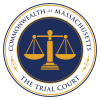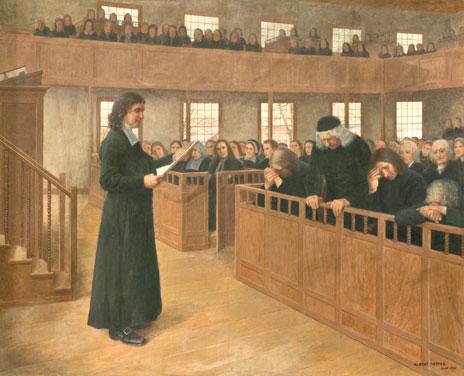- Trial Court Law Libraries
People are still trying to determine why a court of law would have indicted, tried, found guilty, sentenced to death, and executed nineteen men and women in Salem village in 1692 for the alleged crime of witchcraft.
In the September 7, 2015 issue of the New Yorker, Stacy Schiff’s article, “The Witches of Salem: Diabolical doings in a Puritan village” says “In 1641, when the colonists established a legal code, the first capital crime was idolatry. The second was witchcraft. ‘If any man or woman be a witch, that is, has or consults with a familiar spirit, they shall be put to death,’ read the Massachusetts body of laws.” This law appears in the General Laws and Liberties of Massachusetts Bay, Chapter XVIII, “Acts Respecting Capital Crimes”, Section 2, in The Charters and General Laws of the Colony and Province of Massachusetts Bay.
In 1957, in Chapter 145 of the Resolves, a “Resolve Relative to the Indictment, Trial, Conviction and Execution of Ann Pudeator and Certain Other Persons for ‘Witchcraft’ in the Year Sixteen Hundred and Ninety-Two,” the General Court of Massachusetts issued a kind of apology to the descendants of some of the witches who were executed. It read “The General Court of Massachusetts declares its belief that such proceedings, even if lawful under the Province Charter and the law of Massachusetts as it then was, were and are shocking, and the result of a wave of popular hysterical fear of the Devil in the community. . .” Chapter 122 of the Acts of 2001 went on to name five other women who fit in the category of “certain other persons.”
Massachusetts Trial Court’s Essex Law Library can direct you to more information about the Salem trials, including a wealth of material from their own collection.
Douglas Linder’s Famous American Trials website provides An Account of the Events in Salem and a host of other links to information about the Salem Witchcraft Trials.

